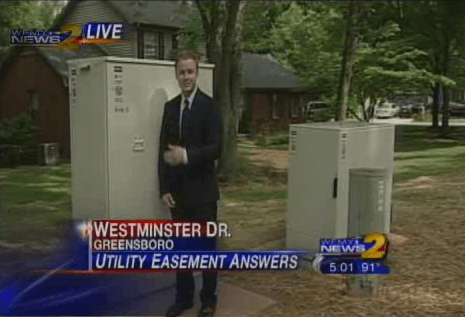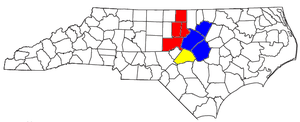Digging into the reality of community broadband – the New Rules Project compares the broadband prices and speeds of community networks to incumbent providers, using examples from North Carolina that are representative of modern community fiber networks. Incumbent providers including AT&T, Comcast, and Time Warner Cable want to outlaw these networks even as many, including the Federal Communications Commission, recognize the clear benefits of allowing communities to decide locally whether such an investment makes sense. What is your broadband service like? Would you trade your ISP for one of these community fiber providers? (3 minutes)
- Home
- Issues
- Multimedia
- Providers
- 3 Rivers Communications
- AAPT (Australia)
- Alaska Communications
- Altice USA
- América Móvil
- Antietam Broadband
- Armstrong Cable
- Astound
- AT&T
- Atlantic Broadband
- BCI Broadband
- Bell (Canada)
- Bell Aliant
- BendBroadband
- Blue Ridge Communications
- Boost Mobile
- Bresnan
- British Telecom
- Buckeye
- Burlington Telecom
- C Spire
- Cable One
- Cablevision (see Altice USA)
- CenturyLink
- Charter Spectrum
- Chickamauga Telephone
- Cincinnati Bell
- Cinergy MetroNet
- Claro Puerto Rico
- Click! Network
- CMA Communications
- Cogeco
- Comcast/Xfinity
- CommSpeed
- Conexon
- Consolidated Communications
- Cox
- Cricket
- DigitalBridge
- DirecTV
- Dish Network
- DSL Extreme/trueSTREAM
- Earthlink
- EastLink
- Empire Access
- EPB Fiber
- EVDO Depot USA
- Exetel (Australia)
- FairlawnGig
- FairPoint
- Fibrant
- Fidelity Communications
- Fido
- Fido Cable
- Firefly Fiber
- Free Mobile/Iliad (France)
- FreedomPop
- Frontier
- GCI (Alaska)
- GoNetspeed
- Google Fiber & Wireless
- Grande
- Greenlight (NC)
- Greenlight Networks (NY)
- GVTC Communications
- Haefele TV
- Hargray
- Hawaiian Telcom
- HKBN (City Telecom)
- HKT (Hong Kong)
- Hotwire
- HughesNet
- Internode (Australia)
- Jio (India)
- Kit Carson Telecom
- Koodo
- Liberty Cablevision (Puerto Rico)
- Liberty-Bell Telecom
- Liberty/UPC
- LightSquared
- Long Lines
- LUS Fiber
- MCG
- MCTV
- Mediacom
- Metrocast
- Metronet
- MetroPCS
- MI-Connection
- Microsoft
- Mid-Rivers Communications
- Midco
- Middleburgh Tel (NY)
- Millenicom
- Mobilicity
- MTS (Manitoba)
- MWEB (South Africa)
- netBlazr
- NetZero
- NewWave Communications
- NextLight
- NorthwesTel
- Novus
- O2 (UK)
- Oceanic Cable
- OMGFAST
- Optus (Australia)
- Orange
- PCL Cable
- Public Mobile
- RCN
- Ringgold Telephone
- Rogers
- SaskTel
- Service Electric
- Shaw
- Sky (UK)
- Sonic.net
- Sony
- Sprint
- Starlink (SpaceX)
- Starry Internet
- Suddenlink (see Altice USA)
- SureWest
- Syringa Wireless
- T-Mobile
- TalkTalk (UK)
- TDS Telecom
- TekSavvy
- Telecom New Zealand
- Telekom Deutschland
- Telekom Malaysia
- Telkom (South Africa)
- Telstra
- TelstraClear (New Zealand)
- Telus
- Tesco (UK)
- Ting
- TracFone
- US Cable
- US Cellular
- USI Wireless
- Utopia (Utah)
- Verizon
- ViaSat Exede
- Vidéotron
- Virgin Media (UK)
- Virgin Mobile
- Virgin Mobile (Canada)
- Vodafone (New Zealand)
- Vodafone (UK)
- Wave Broadband
- Webpass
- WildBlue/Exede
- Wind Mobile (Canada)
- Windjammer
- Windstream
- WiredWest
- Wireless 'n Wifi
- WOW!
- Ziply Fiber
- Streaming Services
 Subscribe
Subscribe- About Us
- Alternatives!
- Contact Us
- Take Action!








